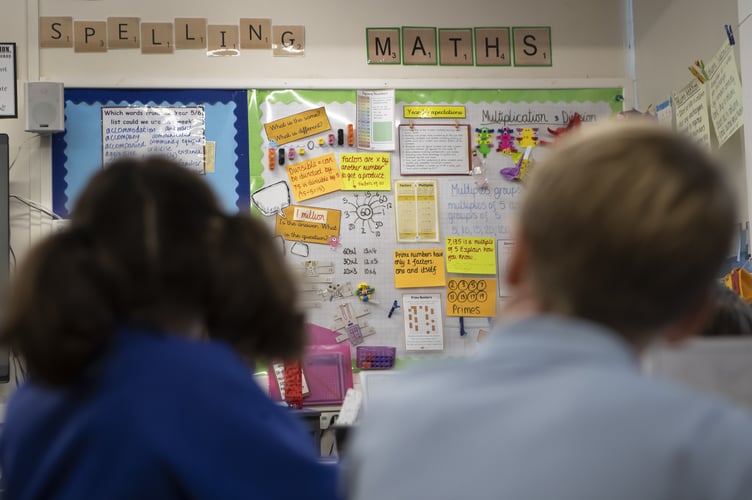The number of pupils permanently excluded from schools in Cornwall has risen in a year, new figures show.
A teachers' union warned the rate of suspensions and exclusions was "still worryingly high" and risks damaging young people's future prospects.
Data from the Department for Education shows there were 61 exclusions in Cornwall in the spring term of 2023-24, an increase on the 52 a year earlier.
Across England, there were 3,107 permanent exclusions in spring 2024, compared to 3,039 in spring 2023 – a rise of 2%.
The rise comes amid warnings of challenging behaviour in classrooms following the pandemic.
Steve Haines, director of public affairs at the charity Impetus, called the figures "a stark warning".
He said: "Our schools are not set up to support the needs of all students.
"Young people from disadvantaged backgrounds in particular are four times more likely to be suspended and five times more likely to be excluded than their better-off peers – with knock-on effects that can impact the rest of their lives.
Nationally, the number of suspensions increased from 263,904 to 295,559 over the same period.
In Cornwall there were 4,628 temporary school suspensions, an increase on last year, when there were 2,593.
The most common reason for suspensions and permanent exclusions was persistent disruptive behaviour, the DfE said.
Paul Whiteman, general secretary at school leaders’ union NAHT, said: "The poor behaviour that leads to suspension and exclusion often has causes outside the classroom, with big challenges facing children and families, including poverty, the cost-of-living crisis, accessing wider services for Send support, and some lingering impact of the pandemic."
He added: "Schools can’t do it on their own. To avoid suspension and exclusion, they need funded, specialist help to meet every child’s needs."
Nationally, the number of suspensions and permanent exclusions fell from autumn 2023, when there were 346,279 and 4,168 respectively.
Permanent exclusions are "generally higher" in the autumn term each year compared to the following spring term, the DfE said.
Pepe Di’Iasio, general secretary of the Association of School and College Leaders, said: "Young people only have one chance at a good education, and leaders and teachers are all too aware that missing out on time in the classroom is damaging to their attainment and future prospects.
"School leaders only take these serious measures when they have exhausted all other options, and therefore we need to focus on early intervention strategies that provide help to pupils who are struggling."
Stephen Morgan, minister for early education, said: "Suspensions and permanent exclusions continue to creep up, costing all children and young people – and those with Send in particular – precious time at school and hampering their life chances.
"That is why, as part of our Plan for Change, we are turning the tide on the underlying causes of poor behaviour by providing access to a specialist mental health professional in every school and ensuring earlier intervention for pupils with Send."
He added the roll out of free breakfast clubs in schools would improve children’s "attendance, attainment and behaviour".




